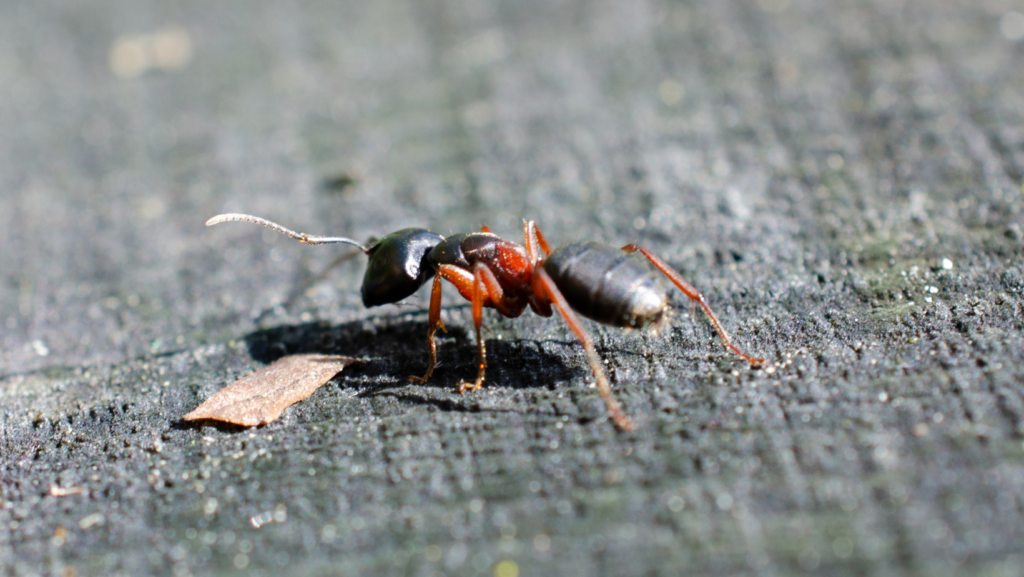Top-Rated Termite Control Services: Make Certain Long-Term Security for Your Residential or commercial property
Wiki Article
Environmental Impact of Insect Control: Harmonizing Efficiency With Sustainability
The ecological effect of insect control is an essential concern that requires a delicate balance between accomplishing efficiency in making certain and taking care of insects sustainability of our ecosystems. From the use of damaging chemicals that permeate right into our dirt and water to the unplanned consequences on non-target species, the repercussions of traditional bug control techniques are far-reaching.Dangerous Chemicals in Insect Control
The use of harmful chemicals in pest control presents significant ecological and health dangers that necessitate careful consideration and mitigation approaches. Pesticides, herbicides, and insecticides are commonly utilized to eradicate insects, however their extensive application can result in unintentional consequences. These chemicals can infect dirt, water sources, and the air, affecting not just the targeted bugs however also useful insects, wildlife, and human beings.
To attend to these risks, integrated parasite administration (IPM) strategies are being advertised as a much more sustainable alternative. IPM involves a combination of methods such as organic control, environment adjustment, and the targeted use chemicals as a last option (ant control lexington nc). By embracing an alternative method to pest control, we can reduce the environmental and health effects related to hazardous chemicals while effectively taking care of pest populations
Influence On Non-Target Variety
Taking into consideration the unintentional consequences of pest control approaches, the influence on non-target varieties is an essential aspect that requires detailed examination. While pest control procedures intend to target particular bugs, other organisms in the environment might be accidentally influenced. Non-target varieties, including beneficial insects, birds, animals, and also plants, can experience indirect or straight harm from chemical applications or organic control approaches.Pesticides can have lethal or sub-lethal impacts on non-target types. For instance, insecticides made to fight a certain insect bug might harm pollinators like bees or all-natural predators such as ladybugs. In addition, chemical deposits can collect in the atmosphere, affecting non-target organisms gradually. Likewise, biological control agents, if not species-specific, can posture dangers to unintended targets, disrupting the ecological equilibrium.
To mitigate the effect on non-target varieties, integrated bug management (IPM) methods that highlight an all natural approach to pest control are recommended. These approaches focus on making use of eco-friendly methods, reducing damage to valuable organisms while properly handling pest populations. Carrying out comprehensive danger analyses and keeping an eye on the end results of parasite control efforts are crucial actions in guarding non-target varieties and advertising overall environment health.
Dirt and Water Contamination
Unexpected ecological repercussions of bug control approaches expand past influencing non-target types, with significant effects for dirt and water contamination. Pesticides, herbicides, and chemical plant foods utilized in pest control can seep into the soil and contaminate groundwater, posturing a hazard to both water and terrestrial environments. Dirt contamination can interfere with the balance of microorganisms essential this link for vitamins and mineral biking and plant growth, leading to lowered soil fertility and productivity. These chemicals can linger in the environment for extended periods, gathering in the soil and potentially entering the food chain.Water contamination is one more vital issue associated with parasite control methods. Drainage from agricultural areas treated with pesticides can carry these chemicals right into neighboring water bodies, influencing water microorganisms and water top quality. Pollutants in water resources can have significant effects, influencing not just water life yet additionally human health and wellness with the intake of infected water or marine microorganisms. To minimize soil and water contamination from pest control activities, integrated insect administration strategies that prioritize sustainability and decrease chemical inputs are crucial.
Air Pollution From Pesticide Usage
Direct exposure to air-borne chemicals during agricultural applications positions a significant concern for air pollution control measures. Additionally, pesticide drift, where pesticides are brought by the wind to unintentional locations, can lead to the contamination of close-by ecological communities and water bodies.
Strategies for Lasting Pest Control
In the realm of agricultural methods, implementing sustainable insect control strategies is vital for preserving environmental balance and protecting plant yields. Sustainable insect control highlights making use of eco-friendly methods to handle bug populaces efficiently while decreasing harm to non-target organisms and ecological communities. Integrated Insect Administration (IPM) is a widely taken on technique that integrates biological, cultural, physical, and chemical control methods to achieve lasting bug management options.Crop rotation and diversification are additionally reliable strategies to disrupt pest life cycles and develop less desirable problems for insects to prosper. Eventually, by incorporating these lasting bug control strategies, farmers can accomplish a balance in between pest administration effectiveness and environmental stewardship.
Final Thought
To conclude, the environmental influence of parasite control techniques have to be carefully thought about to balance effectiveness with sustainability. Harmful chemicals made use of in insect control can lead to soil and water contamination, air pollution, and injury non-target varieties - ant control. It is critical to execute lasting bug control techniques to lessen these unfavorable results on the atmosphere and promote a healthier ecological community for future generationsBy embracing a holistic strategy to pest control, we can reduce the environmental and health and wellness influences connected with unsafe chemicals while properly handling pest populaces.
To reduce the air pollution triggered by pesticide usage, it is necessary to embrace integrated insect administration approaches that focus on the use of non-chemical pest control techniques, such as crop rotation, natural killers, and resistant plant ranges. Sustainable insect control highlights the usage of ecologically friendly techniques to manage pest populaces effectively while minimizing harm to non-target organisms and ecological communities. Integrated Bug Management (IPM) is a widely taken on approach that incorporates biological, cultural, physical, and chemical control approaches to attain long-term insect administration solutions.
Report this wiki page